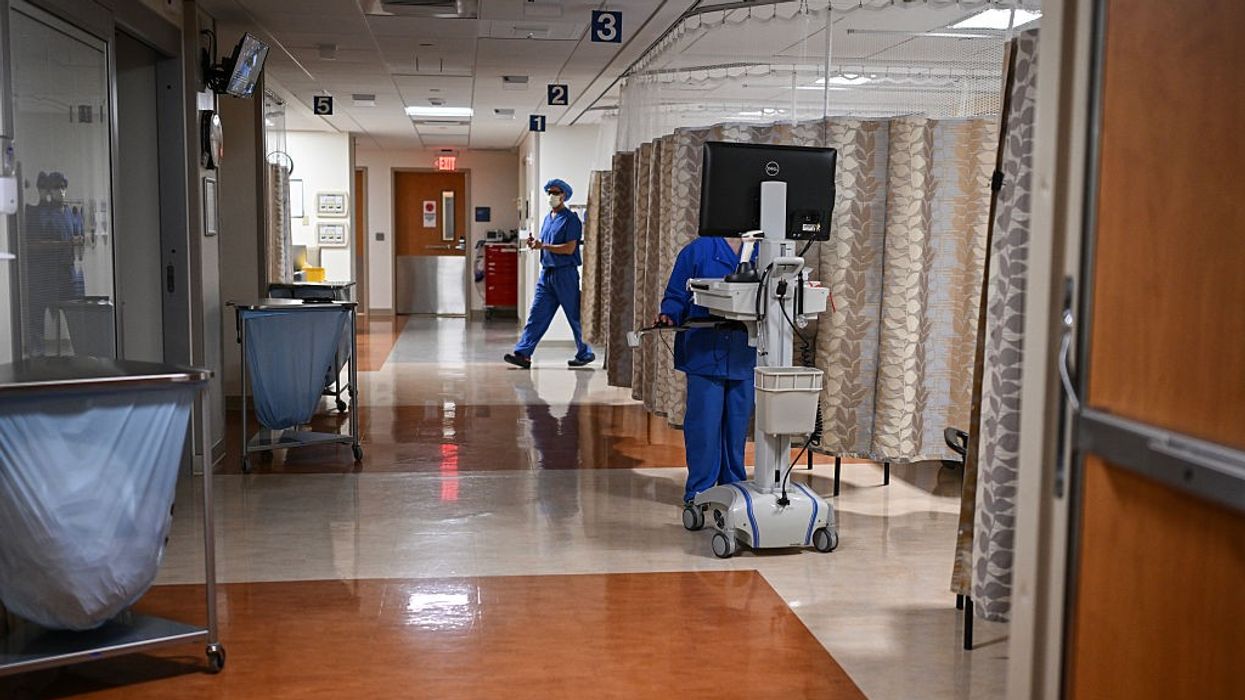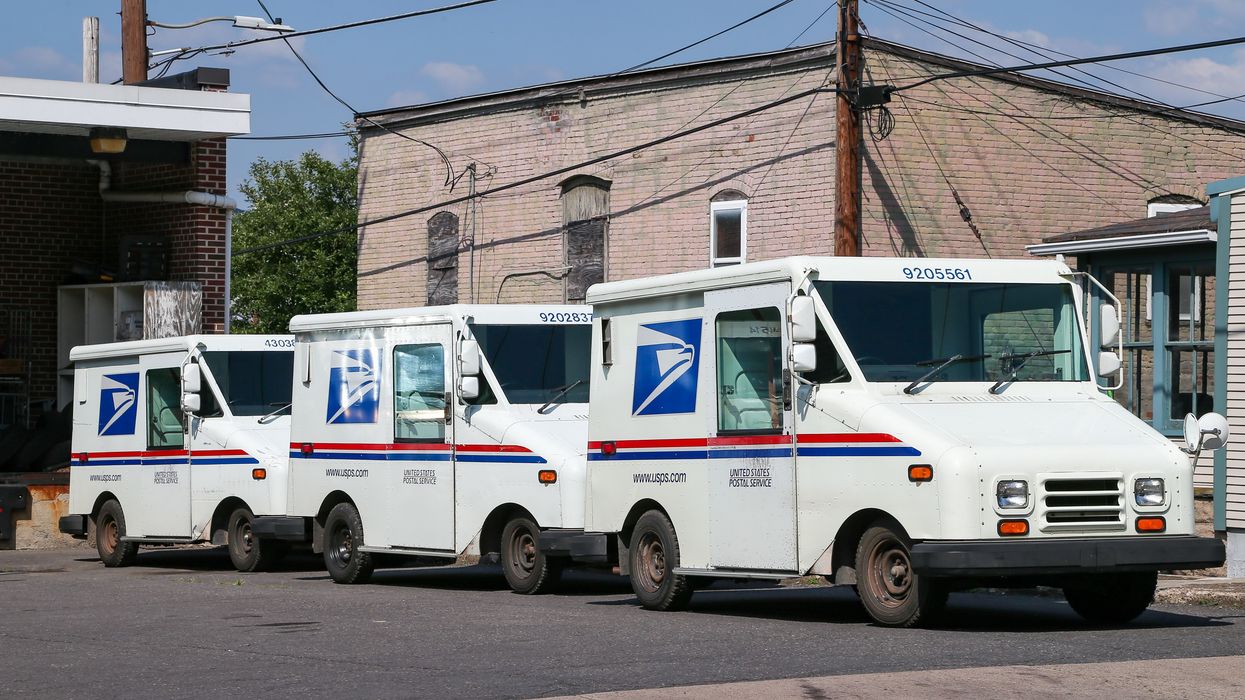A Rural Health Fund Band-Aid Will Not Staunch the Bleeding
The Trump administration’s rural hospital fund, meant to soften the impact of the brutal Medicaid cuts in HR1, will require a murky submission process and will not come close to closing the gap for rural communities.
Amid furious efforts to cover their tracks, Republicans included $50 billion in new funding to offset the disastrous cuts that rural hospitals will face as a result of President Donald Trump’s House Resolution 1. Trump’s new Centers for Medicare and Medicaid Services Director, Dr. Mehmet Oz, gave an explanation which would be laughable if this weren’t so serious. He stated that the Rural Health Fund “is part of a broader effort to modernize rural healthcare… [and that] innovation is the reigning theme” citing growing opportunities for rural providers to become more engaged in the healthcare system.
The “Rural Health Fund” was established by HR1 to soften the impact of the legislation, which cuts $911 billion in federal Medicaid spending over 10 years, due to start after 2030. The good news is that the distribution of the $50 billion will begin before the Medicaid cuts take effect (conveniently before the midterms). The bad news is that the temporary $50 billion in new funding will offset a little over one-third (37%) of the estimated $137 billion in permanent cuts to federal Medicaid spending in rural areas. People everywhere can do the math. Fifty is a whole lot less than 137.
On September 15, Centers for Medicare and Medicaid Services (CMS) released a Notice of Funding Opportunity for states to apply for the funds. Half of the funds, $25 billion, will be distributed by CMS equally across all states with approved applications, and the other half distributed based on four factors identified by CMS, including priorities that align with the Make America Healthy Again agenda. While some of the goals are welcome, such as expanding access to opioid-use and substance-use disorder treatment and mental healthcare and recruiting and retraining clinicians in rural areas, other priorities, such as supporting value-based care, alternative payment models, and other innovative delivery arrangements that shift risk to practitioners away from insurance companies and that have been demonstrated to increase costs in Medicare, are worrisome. Predictably, no funds can be used to pay for abortions for women living in rural areas.
Each state, regardless of the size of their rural population and needs, will receive the same amount from the first $25 billion tranche. States with few rural hospitals, such as Delaware, with three rural hospitals, will receive equal funding as California, with 66 rural hospitals, some of which have closed and many which are at risk of closing, and that assumes that both states are approved for funding.
We urge residents of rural communities to stand together and demand the right to excellent healthcare that our wealthy nation can and must provide.
Disbursement of the funds promises to be a cronyism gravy train requiring applications, murky decision criteria, no administrative or judicial review, and nonexistent information as to the amount a state will receive, how the funds will be distributed, or even if the funds will go only to rural hospitals. A merit review panel will review the state applications with final award decisions made by CMS. The program runs for five years, but because CMS will reevaluate state initiatives every year, CMS could withhold, reduce, or even recover funding from the state depending on a state’s progress or if continued funding is “in the government’s best interests.” The only thing that is clear is that hospitals and their administrators will spend countless hours and resources on evaluation, reports, and contractors hired to write these reports.
The stakes for rural hospitals couldn’t be higher. As a result of the Medicaid cuts, hundreds of rural hospitals are at risk of closing. But even before cuts, rural hospitals have been shuttering: From 2005 to 2024, 193 rural hospitals closed. In the wake of HR1Sen. Ed Markey (D-Mass.) and others asked the Sheps Center to identify rural hospitals at risk of closing because of the Medicaid cuts. The Sheps Center identified 338 hospitals which either experienced three consecutive years of negative total margins, serve the highest share of Medicaid patients, or both. These are the hospitals that, because of their heavy reliance on Medicaid funds, will likely shutter.
What will happen to the millions of people who live in these rural communities when these hospitals close? The median travel distance to the next hospital, emergency room, substance-use, or heart specialty care center will jump seven- to eightfold. This translates to higher mortality from many common conditions: heart disease, cancer, stroke, and unintentional injury.
In "The False Promises of VA Privatization", author Suzanne Gordon highlights the plight of healthcare access for veterans and Americans who live in rural communities, the majority of whom already live in so-called medical and mental health deserts. For example, 81% of rural communities do not have even one psychiatric nurse practitioner and 65% do not have a single psychiatrist. The shuttering of rural hospitals will also mean the loss of thousands of healthcare worker jobs and the ensuing negative economic impact on those communities.
The $50 billion rural health fund earmarked by the Trump administration will not transform these rural medical deserts, will not protect the livelihood of workers and their families, nor will it safeguard their communities. The piddly funds will not staunch the bleeding the brutal cuts to Medicaid will cause.
National Single Payer has launched a “Save Our Rural Hospitals with National Single Payer” campaign. We believe that a national, improved Medicare for All, free from profit in the financing and the delivery of care, would provide the reliable, equitable funding needed to help hospitals and physicians not only survive, but thrive in rural areas. The funding from global budgets would be based on community healthcare needs and not on industry interests.
We urge individuals who live in districts where the at-risk hospitals are located to contact their representatives and ask them to cosponsor HR3069, the Medicare for All Act. If your representative is already a cosponsor, tell them to do more to put national single payer on the nation’s agenda.
People can also pass a resolution in their local organization or city council going on record in favor of saving and sustaining their rural hospitals by calling on Congress to pass national, improved Medicare for All, free from profit.
We urge residents of rural communities to stand together and demand the right to excellent healthcare that our wealthy nation can and must provide. The 46 million people living in America’s rural communities don’t need a temporary Band-Aid—they deserve what everyone deserves, no matter where they live—healthcare as a human right, free from profit.


